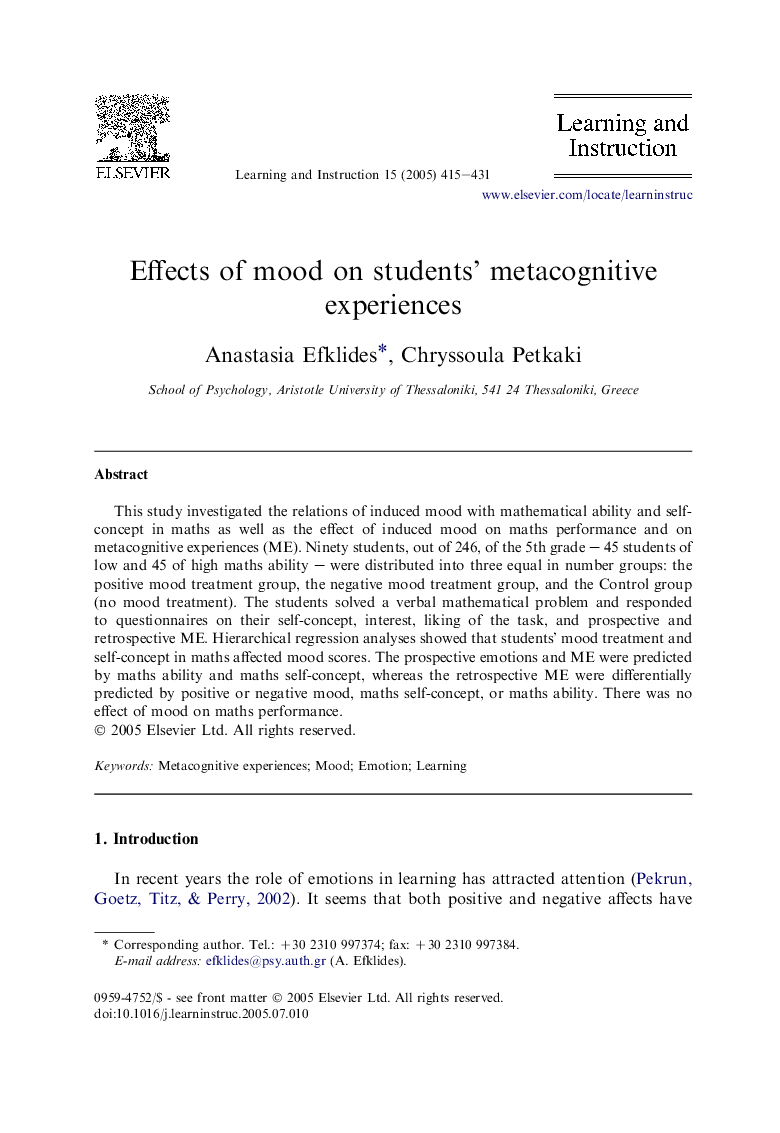| Article ID | Journal | Published Year | Pages | File Type |
|---|---|---|---|---|
| 10315760 | Learning and Instruction | 2005 | 17 Pages |
Abstract
This study investigated the relations of induced mood with mathematical ability and self-concept in maths as well as the effect of induced mood on maths performance and on metacognitive experiences (ME). Ninety students, out of 246, of the 5th grade - 45 students of low and 45 of high maths ability - were distributed into three equal in number groups: the positive mood treatment group, the negative mood treatment group, and the Control group (no mood treatment). The students solved a verbal mathematical problem and responded to questionnaires on their self-concept, interest, liking of the task, and prospective and retrospective ME. Hierarchical regression analyses showed that students' mood treatment and self-concept in maths affected mood scores. The prospective emotions and ME were predicted by maths ability and maths self-concept, whereas the retrospective ME were differentially predicted by positive or negative mood, maths self-concept, or maths ability. There was no effect of mood on maths performance.
Related Topics
Social Sciences and Humanities
Psychology
Developmental and Educational Psychology
Authors
Anastasia Efklides, Chryssoula Petkaki,
